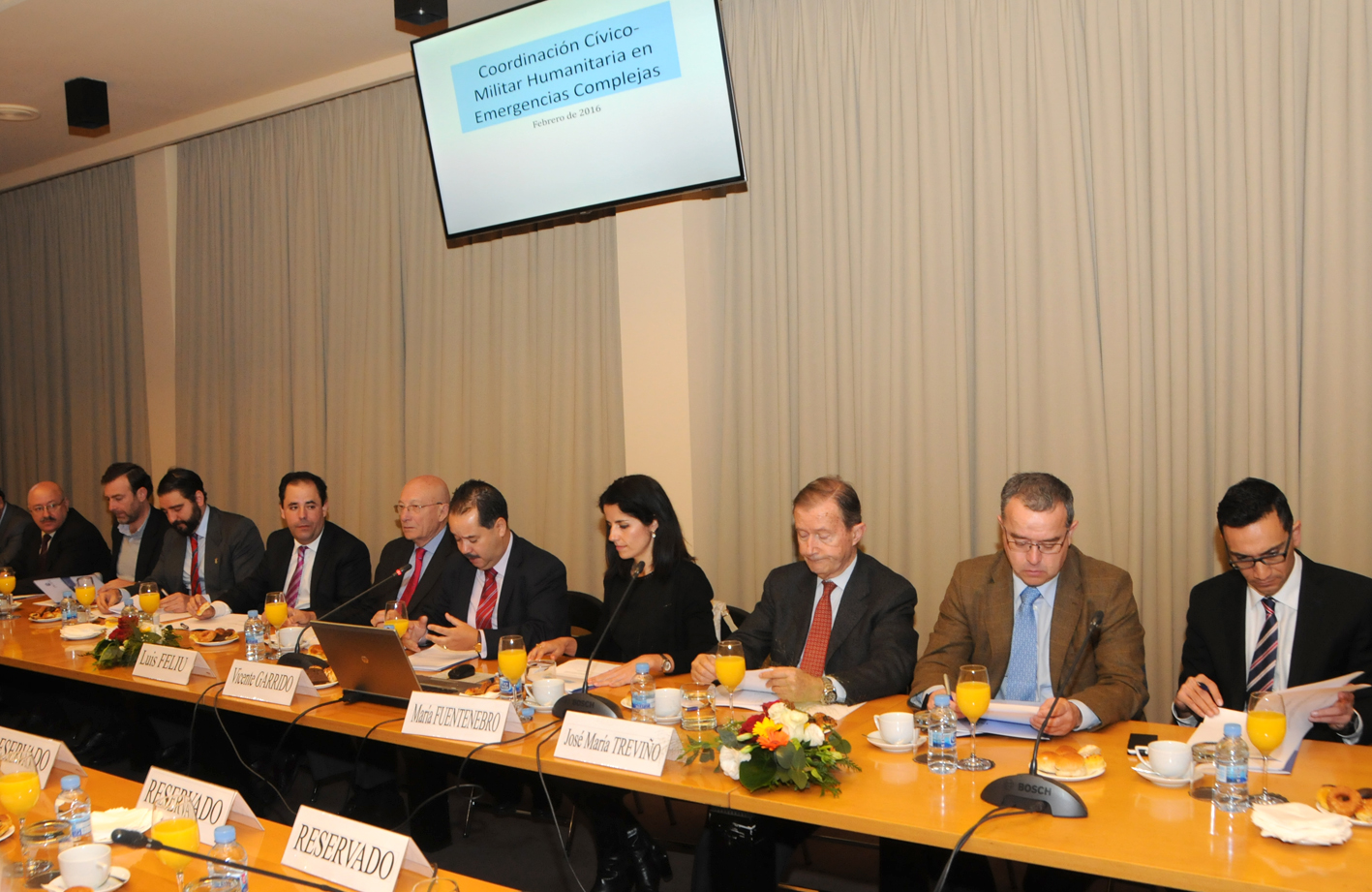Humanitarian Civil-Military Coordination in Complex Emergencies

On February 26th, 2016: INCIPE held a Working Breakfast, titled Humanitarian Civil-Military Coordination in Complex Emergencies, to discuss the role of the military and multinational organizations in carrying out humanitarian aid efforts internationally. María Fuentenebro, former Humanitarian Affairs Officer in the Civil-Military Coordination of the United Nations’ Office of Coordination of Humanitarian Affairs (OCHA), attended the event.
The international system has several resources for dealing with humanitarian emergencies, including Non-Governmental Organizations (NGOs) and multinational organizations, such as the United Nations’ OCHA. The handling of these situations becomes increasingly complicated when considering complex emergencies, such as those in Syria, Yemen, or South Sudan, among others. These emergencies are characterized by terrorism and/or armed conflict, and are becoming more common in an increasingly globalized world. This is where multinational organizations, such as OCHA, as part of civil-military efforts, conduct their most important work.
In the handling of other types of humanitarian-aid emergencies, such as natural disasters, local populations usually welcome NGOs and other aid organizations; they distinguish them from militaries and cooperate in efforts to overcome the emergency. On the opposite side of the spectrum, the populations of states in complex emergencies merely hope to coexist; NGOs are not necessarily considered separate from military forces. This compromises their aid efforts by reducing their legitimacy in the eyes of a sceptical population.
Under OCHA’s Military and Civil Defense Assets (MCDA) guidelines, which must be followed in the cases of complex emergencies, humanitarian aid can only include military action as a last resort, and only if the situation involves the saving of human lives. All other tactics, including economic and civil efforts, must have been fully considered. Additionally, military intervention must include an exit strategy. The United Nations is leading efforts to develop creative and innovative strategies to deliver humanitarian aid, hoping to avoid the need for military force in the future. This includes analyzing individual situations in joint-assessments and needs assessments, and then developing country-specific guidelines. This enables more flexibility when dealing with each country’s unique situation. Quick Impact Projects (QIPs) have also been developed as a way of administering humanitarian aid more individually tailored to specific issues or regions.
Now the main question: Should the military even have a role in the delivery of humanitarian aid? One perspective is that the military, whether it be national, NATO, or UN lead, should act strictly for military purposes. These actors should exist solely to establish order and peace, while NGOs or other multinational organizations should take full responsibility for the distribution of humanitarian aid. NGOs operate on the principle of complete neutrality; they cannot refuse aid to any person for any reason, and cannot discriminate in who they tend to no matter the circumstances. Because this can sometimes mean providing aid to an absolute enemy and entering the target region unarmed, the military should not be obligated to operate under the non-discrimination requirement and should not even be involved in humanitarian aid efforts. Conversely, one could view the military as a useful asset in the administration of humanitarian aid internationally. The military could complement NGOs and other branches of multinational organizations in distributing humanitarian aid while unarmed and operating under the same guidelines. The separation of military and humanitarian aid actors proves to be not black and white, but include a substantial grey area which, in a newly international and complex system, can be difficult to reach a consensus on.
Members of diverse fields attended the Working Breakfast, including military officers and humanitarian-aid experts. The event ended with a questionnaire where the attendees shared their views on different topics, including personal testimony of delivering humanitarian aid to countries in crisis.
Maria Peurach
INCIPE




